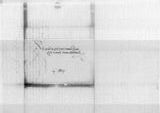List #5496
Sigismund I Jagiellon do Ioannes DANTISCUSVilnius, 1536-04-22
| odebrano [1536]-05-02 Rękopiśmienne podstawy źródłowe:
Publikacje:
| ||||||
Tekst + aparat krytyczny + komentarzZwykły tekstTekst + komentarzTekst + aparat krytyczny
Reverendo in Christo Patri, domino
Reverende in Christo Pater, sincere nobis dilecte.
Ad comites istos Phrusios, de quibus nobis Sinceritas Tua perscripsit
, non possumus hinc nunc equos eiusmodi, qui ex illorum sententia futuri essent, mittere, propterea quod hic id genus equos non habemus et locorum intercapedine tanta tamquam longinquo itinere commode adduci perducique non possent. Sed cum aspirante Deo sospites in
Ex mandato sacrae regiae maiestatis proprio


 BNW, BOZ, 953, f. 144v
BNW, BOZ, 953, f. 144v